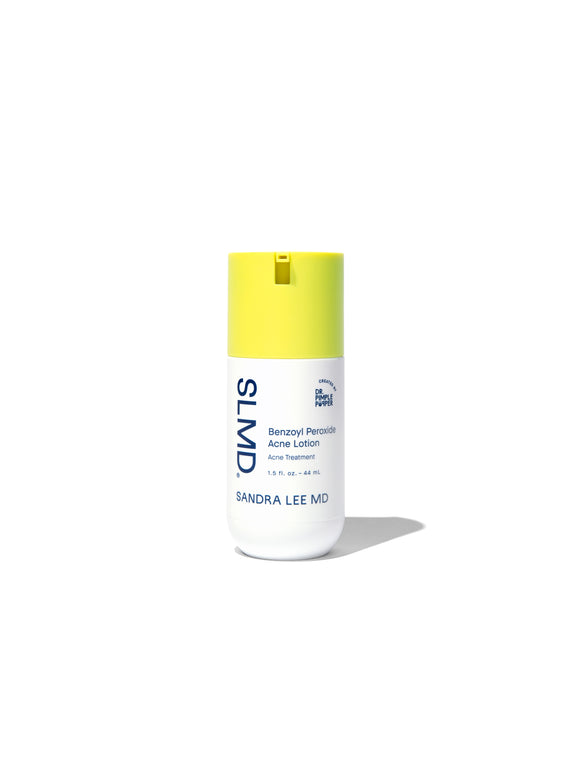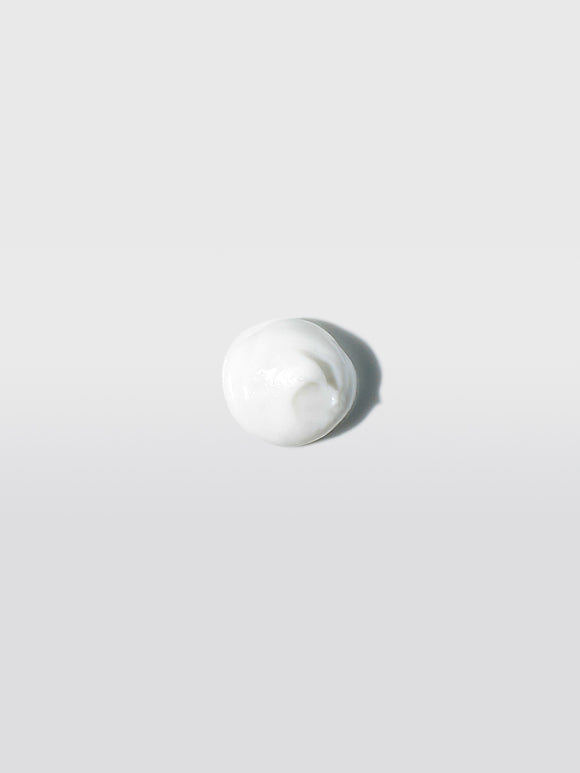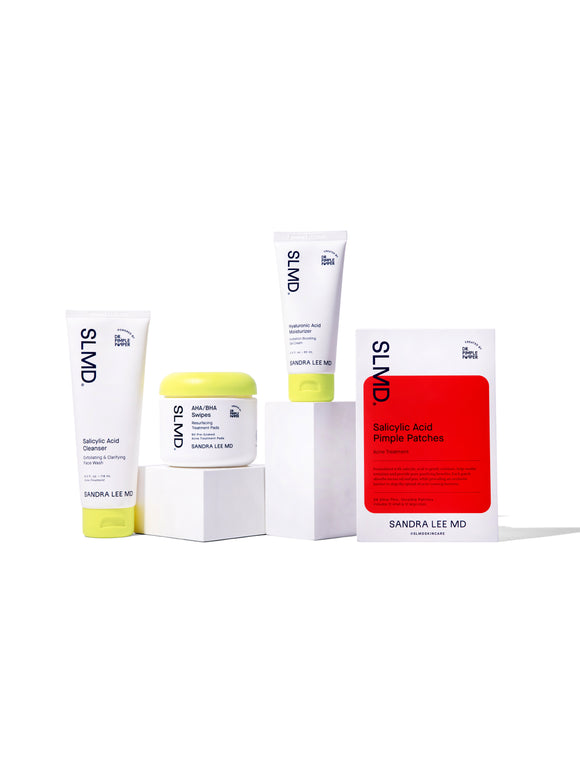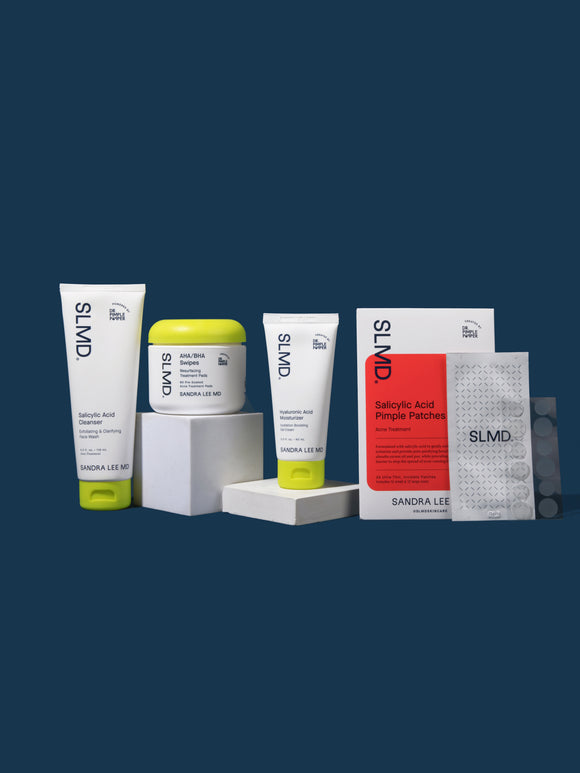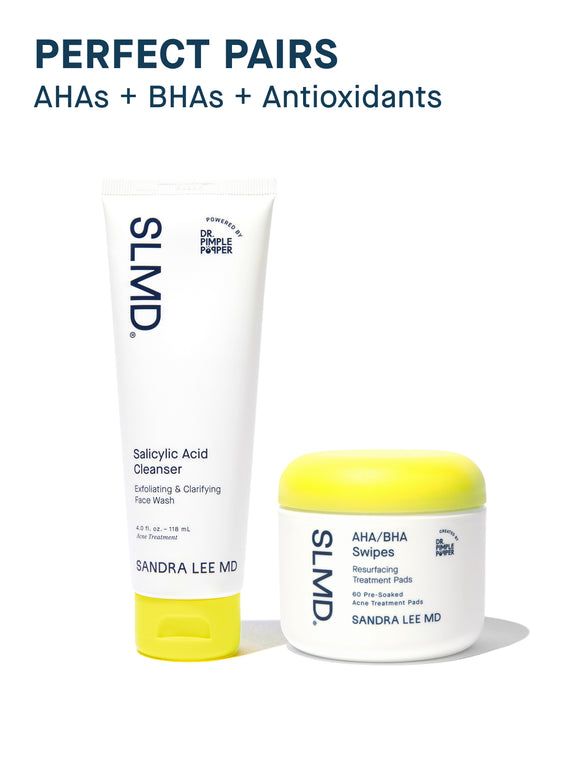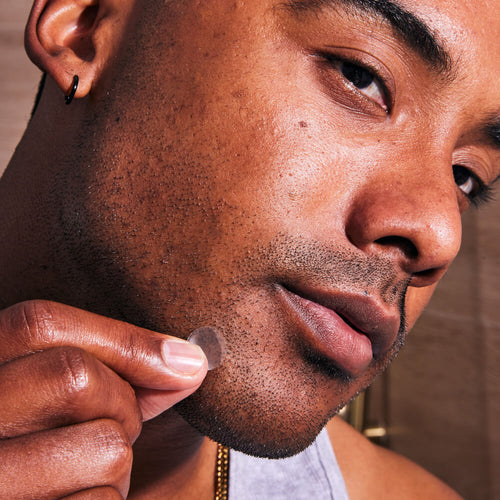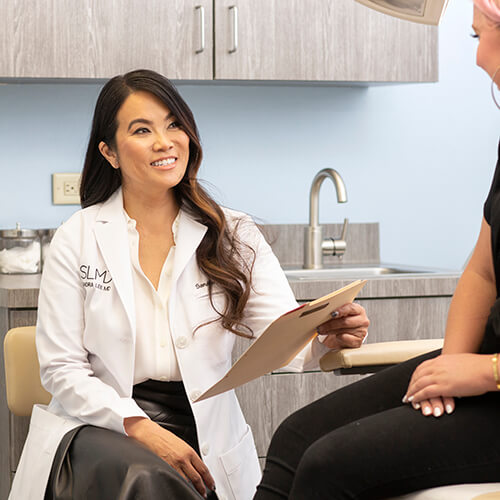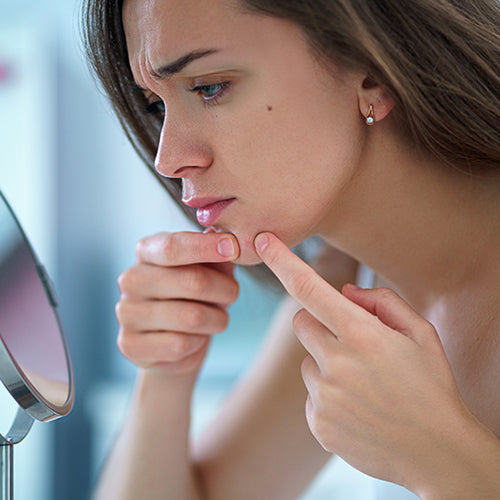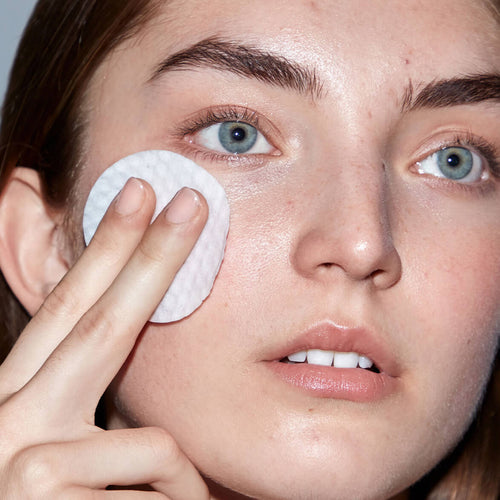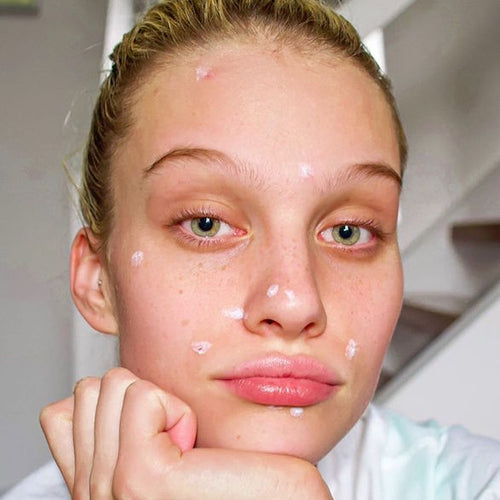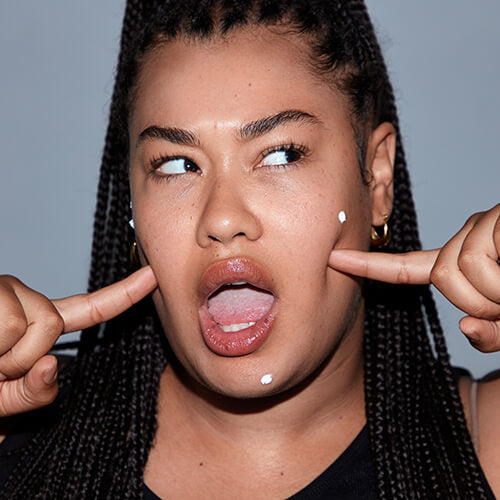
Acne Positivity: How Pop Culture & Social Media Changed Beauty
From Shakespeare to TikTok, Dr. Pimple Popper explores how showcasing real skin redefined beauty standards.
Published:
3 minute read
Every September 1 marks National Acne Positivity Day — but the movement matters every day of the year. From classical art to modern-day TikTok, our views on acne have transformed dramatically. Here’s how history, pop culture, and social media shaped the acne positivity movement — and why it still matters.
What is acne positivity?
Acne positivity is about normalizing real skin — breaking the stigma around breakouts, scars, and skin conditions that have long been hidden or mocked. It celebrates authenticity while also encouraging education, treatment, and self-confidence. At its core, acne positivity reminds people that healthy skin isn’t defined by perfection, and confidence doesn’t have to wait until breakouts disappear.
A brief history of acne stigma
Acne has been documented for millennia by physicians and scholars, but historically, it rarely appeared in art or literature unless used as an insult.
- Shakespeare described a thief’s face as full of “bubukles and whelks” in Henry IV.
- A 16th-century painting called The Tax Collectors (below) shows a man with acne scars — a rare example of real skin in fine art.

Marinus van Reymerswaele, Public domain, via Wikimedia Commons
For the most part, wealthy patrons expected “idealized beauty” in portraits, so skin flaws were airbrushed out centuries before Photoshop existed.
Acne in movies and TV: from villain trope to real skin
For decades, Hollywood linked “perfect” skin with heroes and gave scars or acne to villains and comic relief characters.
- Grease gave its rival gang leader the nickname “Craterface” due to acne scars.
- In the Harry Potter series, Eloise Midgen was mocked for her acne and even disfigured herself trying to cure it with a spell.
This reflected a long-standing cultural message: clear skin equals desirability, while breakouts signaled weakness, danger, or shame.
It wasn’t until films like Lady Bird (2017) showed actress Saoirse Ronan’s real acne scars — earning praise across the internet — that things began to change.
The rise of acne positivity on social media
By the mid-2010s, influencers and content creators began posting unfiltered photos and sharing their acne journeys online.
- Dermatologist Dr. Sandra Lee (aka Dr. Pimple Popper) built a massive YouTube following with real dermatology cases and skin education.
- Creators like Cassandra Bankson, Kali Kushner, and Em Ford used YouTube and Instagram to normalize acne and discuss skin health openly.
- In 2018, model Lou Northcote launched the #freethepimple campaign, helping acne positivity go viral.
Celebrities who’ve spoken out about acne
High-profile stars and influencers have increasingly shared their acne experiences openly, helping shift the conversation from shame to empowerment. Celebs like Kendall Jenner, Justin Bieber, and Cara Delevingne have used their platforms to normalize real skin, while newer voices like Alix Earle continue to show millions of followers that breakouts are nothing to hide. This visibility has helped countless people realize acne is a universal experience, not a personal failing.
@drpimplepopper Acne can be so frustrating for so many people. Thank you @Alix Earle for being so open with your journey 🫶🏽 You’re such an inspiration! #accutane #drpimplepopper #dppreacts
♬ original sound - Sandra Lee, MD
Why acne positivity still matters
Today, there are entire communities promoting acne positivity on TikTok, Instagram, and YouTube — but the movement isn’t just about hashtags. It’s about:
- Mental health: reducing shame and isolation linked to acne
- Education: spreading facts about treatment options and skincare routines
- Empowerment: showing that confidence and self-care can coexist with breakouts
“Acne positivity is about confidence and compassion,” Dr. Lee says. “You can love your skin at every stage while still taking steps to keep it healthy. That’s why I created my SLMD Acne System — so people have access to simple, dermatologist-developed care even if they can’t get to a doctor.”
How to support acne positivity year-round
You don’t have to wait for September 1 to join the conversation. Here are a few ways to help keep acne positivity alive every day:
- Follow acne-positive creators on Instagram, TikTok, or YouTube
- Share your own real-skin story if you’re comfortable
- Support friends and family dealing with acne — no unsolicited advice
- Learn the facts about acne treatments and myths
- Talk to a dermatologist if breakouts are affecting your confidence or mental health
Contributing source: Integrating the Integumentary System with the Arts

Dr. Lee's Last Word
Acne positivity matters — because real skin is normal. Love your skin at every stage, and take care of it: build a simple routine, stay consistent, and be patient with results. If breakouts aren’t improving, talk to your dermatologist — there’s always a path forward.



